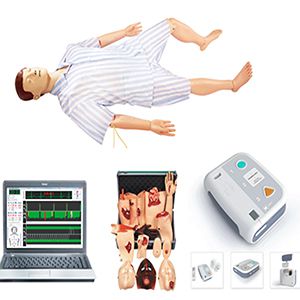迪威国际厅客服
Phone:+86 19937901373
Tel:+86-0379-65160607
Email:sophia@adahealthy.com

Article tag: Emergency nursing training model emergency nursing model

The technical update and future development trend of emergency nursing training model show the characteristics of diversification and intelligence. With the rapid development of science and technology, these models have not only made remarkable progress in simulating real first aid scenarios, but also shown great potential in improving training effects and reducing training costs.

First, technological update
The application of virtual reality (VR) and augmented reality (AR) technology: Through VR and AR technology, the first aid training model can simulate a more realistic first aid scene, so that the trainer seems to be in the scene. This not only increases the trainer's participation, but also enables them to better understand and master first aid skills.
Intelligent evaluation system: The modern emergency nursing training model is equipped with an intelligent evaluation system, which can record the operation process and results of the trainer in real time, and carry out data analysis and evaluation. This not only makes the training effect more quantifiable and evaluable, but also provides the trainer with personalized guidance and advice.
Interactive simulation technology: interactive simulation technology enables the training model to simulate a variety of physiological reactions and disease changes of the patient, so that the trainer can carry out real operation and practice in a simulated environment. This technique not only improves the interest of training, but also enables the trainer to better adapt to the real first aid environment.
Second, future development trend
Remote and network: The future emergency nursing training model will pay more attention to the development of remote and network. Through the network platform, trainers can receive training anytime and anywhere to achieve resource sharing and optimal configuration. At the same time, remote experts can also conduct real-time guidance and evaluation of the training process to improve the training effect.
Intelligent and personalized: With the continuous development of artificial intelligence technology, the emergency care training model will be more intelligent and personalized. Through big data analysis and machine learning techniques, the model is able to more accurately assess the skill and knowledge level of the trainer and provide personalized training plans and recommendations.
Multidisciplinary integration: Emergency nursing is a highly comprehensive discipline, involving medicine, nursing, psychology and other fields. In the future, the training model of emergency nursing will pay more attention to the development of multi-disciplinary integration, and provide more comprehensive and systematic training content for trainers.
To sum up, the technical update and future development trend of emergency nursing training model show the characteristics of diversification and intelligence. With the continuous advancement and application of technology, these models will play an increasingly important role in improving first aid skills and reducing training costs